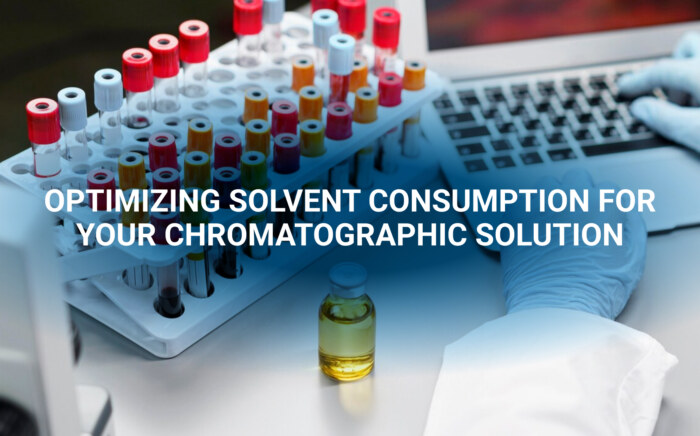Increasing separation efficiency by pH adjustment in Centrifugal Partition Chromatography
NewsCentrifugal Partition Chromatography (CPC) is rapidly gaining recognition as a highly efficient and effective preparative chromatographic technique. Its unique approach, utilizing two immiscible liquid solvent systems as both stationary and mobile phases, sets it apart from traditional chromatography methods. This article explores the principles and advantages of CPC, highlighting why it has become an indispensable tool in scientific research and industry applications.
Principles of CPC
- Partition Coefficient (Kd): At the heart of CPC is the concept of the partition coefficient, an equilibrium constant that dictates how a compound distributes itself between two immiscible liquid phases. This coefficient determines the extent to which a compound will remain in the stationary phase or move with the mobile phase.
- CPC Cells and Rotor: The CPC system consists of a series of interconnected cells linked to a rotor. These cells house the liquid stationary phase, which is immobilized by centrifugal force. The mobile phase, containing the sample, is pumped through the rotor. This setup facilitates the continuous partitioning of sample components based on their partition coefficients.
- Separation Mechanism: Separation in CPC is achieved through the differential partitioning of sample components. Compounds with higher partition coefficients are retained longer in the stationary phase, while those with lower coefficients pass through more quickly, leading to effective separation.
Advantages of CPC
Simple Separation Mechanism: CPC’s straightforward mechanism allows for easier method development and scalability. Its reliance on liquid-liquid partitioning makes it inherently simpler than techniques requiring solid stationary phases.
- High Loadability and Recovery: One of CPC’s significant advantages is its high loadability and recovery rates. Unlike traditional chromatography, CPC minimizes sample loss due to irreversible adsorption, ensuring higher recovery of valuable compounds.
- No Solid Stationary Phase: Eliminating the need for a solid stationary phase, such as silica gel, simplifies the process and reduces costs. This also mitigates issues related to solid waste generation and disposal.
- Minimized Solvent Consumption: CPC is a cost-effective technique with lower solvent requirements. This not only reduces operational costs but also lessens the environmental impact, aligning with sustainable practices in chemical analysis and purification.
- Versatility: CPC’s ability to separate a wide range of compounds makes it highly versatile. It is suitable for applications in biotechnology, pharmaceuticals, natural product extraction, and more, making it a valuable tool across various scientific fields.
RotaChrom’s Contribution to CPC
RotaChrom Technology has been at the forefront of advancing CPC methods, particularly in industrial-scale applications. Their innovative system, which does not rely on a solid stationary phase, enables highly accurate molecular separation. This method surpasses conventional liquid chromatography in terms of yield and purity, offering a robust solution for diverse purification challenges.
- Industrial-Scale Efficiency: RotaChrom’s industrial-scale CPC system is designed for high throughput and scalability. It can process significant quantities of crude input material, making it ideal for large-scale purification projects. This efficiency translates into lower downstream development costs and fewer processing steps.
- Automation and Precision: RotaChrom’s platforms are equipped with automated features that streamline the purification process. Fraction collectors retain selected fractions based on program settings, enhancing the precision and efficiency of separations.
Further Resources
For those interested in exploring CPC and its applications further, RotaChrom offers a wealth of resources. Whether you are working on purifying proteins, nucleic acids, or small molecules, CPC proves to be a powerful and versatile solution that aligns with diverse research goals.
Exploring CPC Applications: To delve deeper into the advancements and practical applications of CPC, you can explore comprehensive resources provided by RotaChrom. These resources offer valuable insights into how CPC can be integrated into various scientific and industrial workflows to achieve optimal results.
Conclusion
Centrifugal Partition Chromatography (CPC) stands out as a sustainable and efficient alternative to traditional chromatography methods. Its unique approach, leveraging liquid-liquid partitioning, significantly reduces solvent consumption and eliminates solid waste, addressing key environmental concerns. With its high loadability, recovery rates, and versatility, CPC is poised to become a mainstay in scientific research and industrial applications. Innovations by companies like RotaChrom further enhance CPC’s potential, making it a powerful tool for modern purification and separation challenges.



